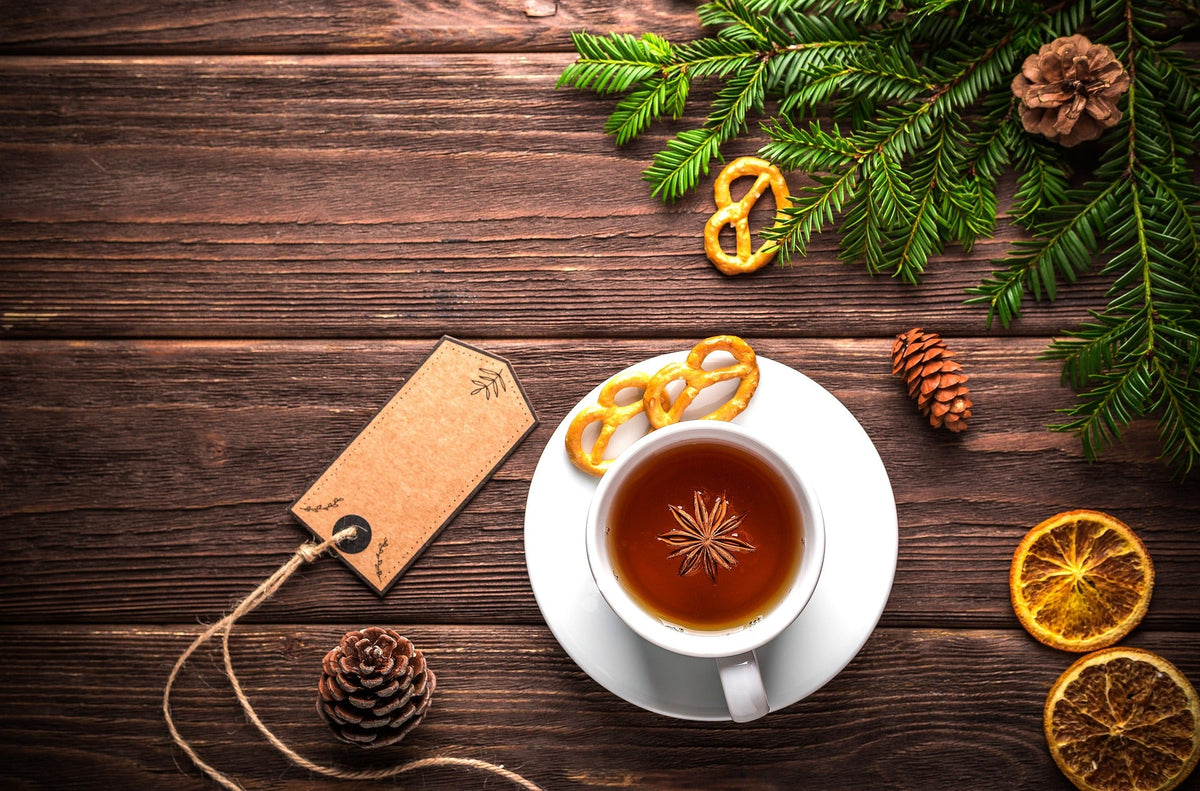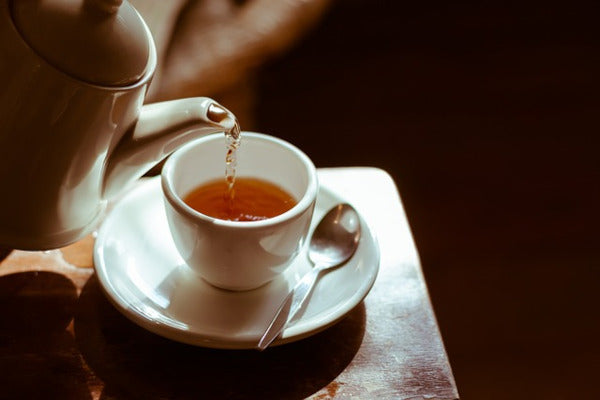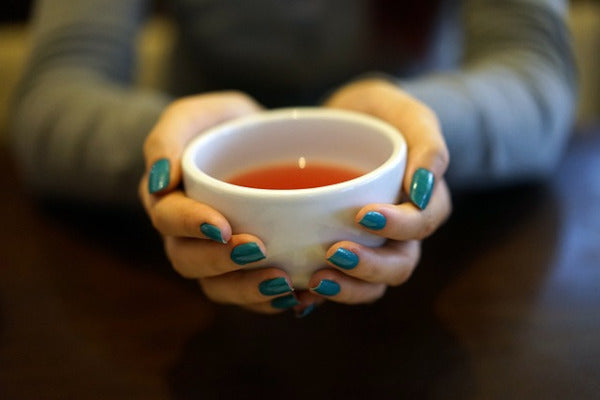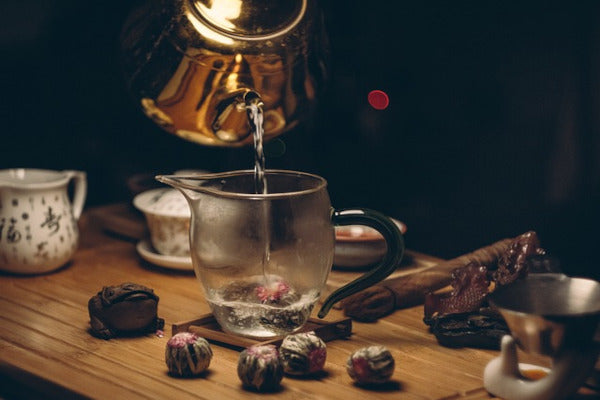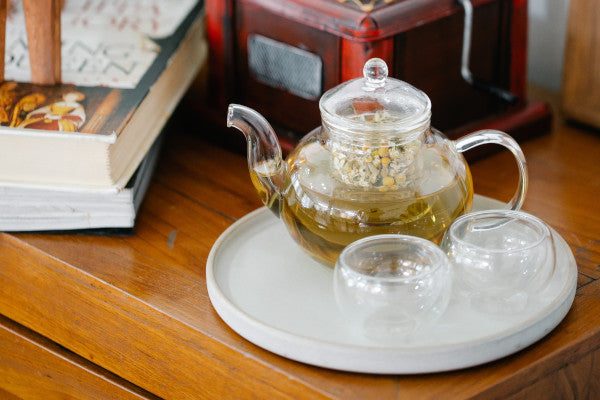Today, teas and infusions are prepared from various plants and even fruits with medicinal properties. These beverages can be introduced into babies' diets, as they often help with digestion and resolve some minor health problems. This is the case with chamomile infusion for babies and other mild infusions for them.
Is chamomile suitable for babies and children?
Since the effect of herbal teas on the health of infants and children is not scientifically and medically confirmed, the question arises as to whether the use of teas (Camellia sinensis) and herbal teas is safe and which herbal teas should be chosen for each age.
Chamomile for babies: when can it be given?
The introduction of herbal teas into babies' diets, as well as the introduction of a mixed diet, is not recommended before the age of 4 months. The recommended first herbal tea is one composed primarily of dried fruits or fruit blossoms (rosehip, hibiscus, apple), but the use of herbal blends made with added colorings or flavorings should be avoided, as they can cause an allergic reaction.

However, although we know that chamomile is good for 4-month-old babies, it is also possible to offer chamomile to 1-month-old babies, in small quantities, because chamomile for babies with colic helps them expel gas and sleep, so even for newborn babies, chamomile is accepted in case of stomach upset.
Tips for preparing infusions for babies and children
1) Always prepare the infusion with boiled water.
2) Reduce the recommended preparation time by half.
3) The temperature of the infusion should not be higher than that of a baby food (26-36ºC).
4) Sugar-free chamomile for babies . It's generally not recommended to sweeten the infusion for children under one year old. After this age, half a teaspoon of honey or sugar can be added per cup.
5) The properties of chamomile are well known, as infusions contain a large amount of various antioxidants and help prevent microbes. On the other hand, it has undesirable effects such as inhibiting iron absorption and potentially causing allergic reactions.
Rosehip/Rose hip and hibiscus
Rosehip is a rose, and hibiscus belongs to the orchid family. These are the two most popular plants for preparing herbal drinks. They also serve as a base for various other infusions and teas. Rosehip and hibiscus drinks have a characteristic red color, a slightly acidic flavor, and a soft floral aroma.

These organic teas are rich in antioxidants, flavonoids, and vitamin C. Both plants are high in iron and other minerals, such as potassium and magnesium, which is why they are claimed to have various healing effects, such as relieving fatigue and anemia.
Fruit infusions
Fruit infusions are very popular today, as they warm and give strength in winter, and in summer they are prepared as iced tea to provide hydration and cooling.
The base of a fruit infusion is always a combination of rosehip and hibiscus. They are usually accompanied by other dried fruits, so that these drinks, in addition to the composition and effects of rosehip and hibiscus, provide the specific properties of the dried fruits. Fruit infusion blends with pieces of apple, orange, cranberry, lemon, and berries are well-known. However, when preparing fruit infusions for children, the acidity level of the fruit infusion should always be checked as well.
Rooibos
Red bush tea, or rooibos , grows only in Africa. It is caffeine-free and rich in flavonoids, vitamin C, and minerals. It is also high in magnesium, potassium, and calcium. It is especially recommended for pregnant and breastfeeding women, as it strengthens the immune system and has a calming and beneficial effect on the fetus, relieving spasms in infants and young children.
Chamomile and mint
Chamomile and mint are known as "cure-alls," as the beneficial effects of chamomile help treat countless health problems, such as colic, cramps, or elevated body temperature.

The effect of mint is more directed at relieving indigestion, but both infusions have a calming effect and are recommended to be diluted with water and offered without sugar, preferably before bedtime.
Fennel
Fennel is a herb known since ancient times, and its healing properties primarily address digestive disorders, such as bloating and cramps in the stomach and intestines. Furthermore, fennel is an excellent source of potassium and beta-carotene, and has a laxative effect, so its use is not recommended for children with diarrhea.
Marshmallow
Marshmallow relieves various forms of inflammation, especially of the mucous membrane, and is therefore often a main ingredient in cough syrups . It also contains salicylic acid (a natural precursor to aspirin), which relieves headaches and muscle pain. In earlier times, it was used as a medicine for indigestion, to strengthen the digestive organs, and as a diuretic, but due to its broad healing spectrum, its use is not recommended for infants.
Tea plant - Camellia Sinensis
The tea plant, also known as Camellia sinensis, is better known as black, green, blue, and white tea. These teas vary in the timing and method of harvesting and processing the leaves, and therefore have different properties. Importantly, these teas contain theine and numerous antioxidants. The antioxidant and theine content depends on the processing of the leaves, which can be seen in the color of the tea. Black tea has the highest content, followed by green tea , blue (oolong), and finally white tea , which have the lowest content. Although these teas have many positive health effects, they are not recommended for infants and children due to their high concentrations of polyphenols and theine. High concentrations of polyphenols inhibit iron absorption, and theine increases blood pressure and alertness.
Summary: Are chamomile teas and other herbal teas good for babies?
Chamomile generally has no side effects. Keep in mind that not all teas and infusions are suitable for children. Chamomile has a mild taste and effect and generally doesn't cause side effects, but some plant species are dangerous. It's also important to know how to prepare organic tea or infusion for babies and children.
If you want to treat your baby with herbal teas for health problems or to relieve symptoms, or perhaps you want to offer this infusion for children in your restaurant or café, do your research. Always choose organic teas and infusions. At Tétique, we have years of experience that guarantee the quality of our products.


